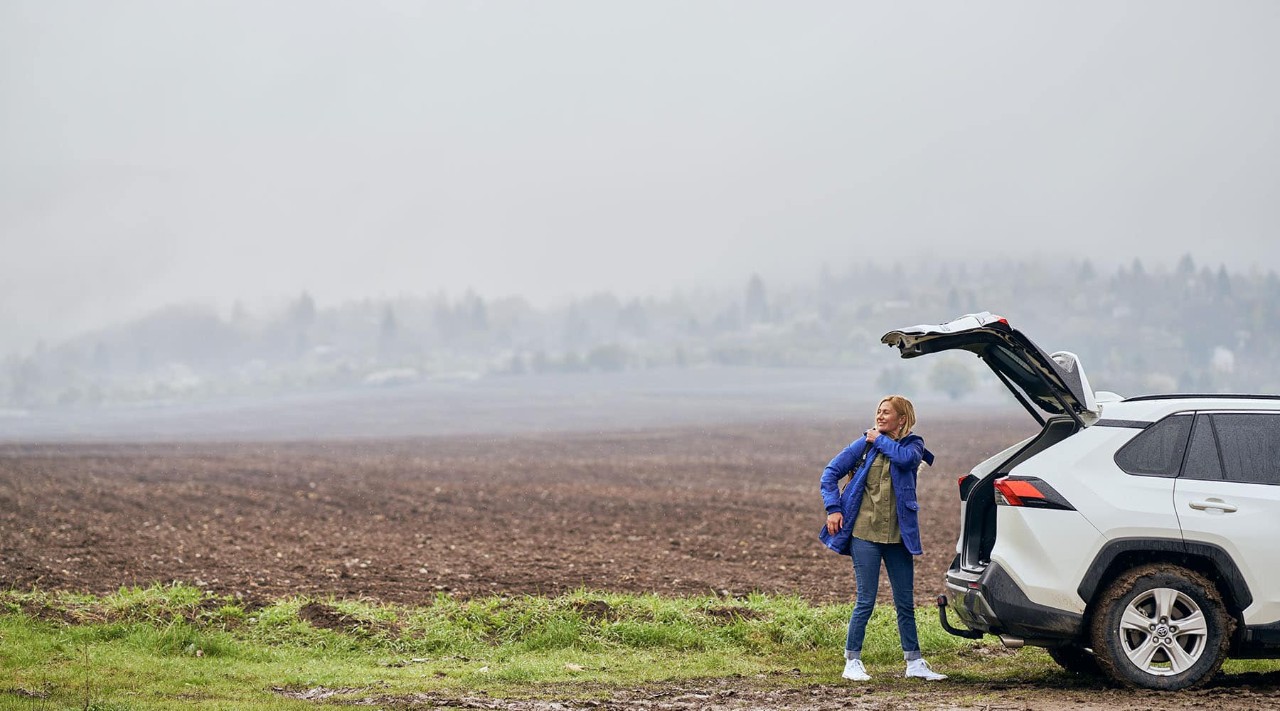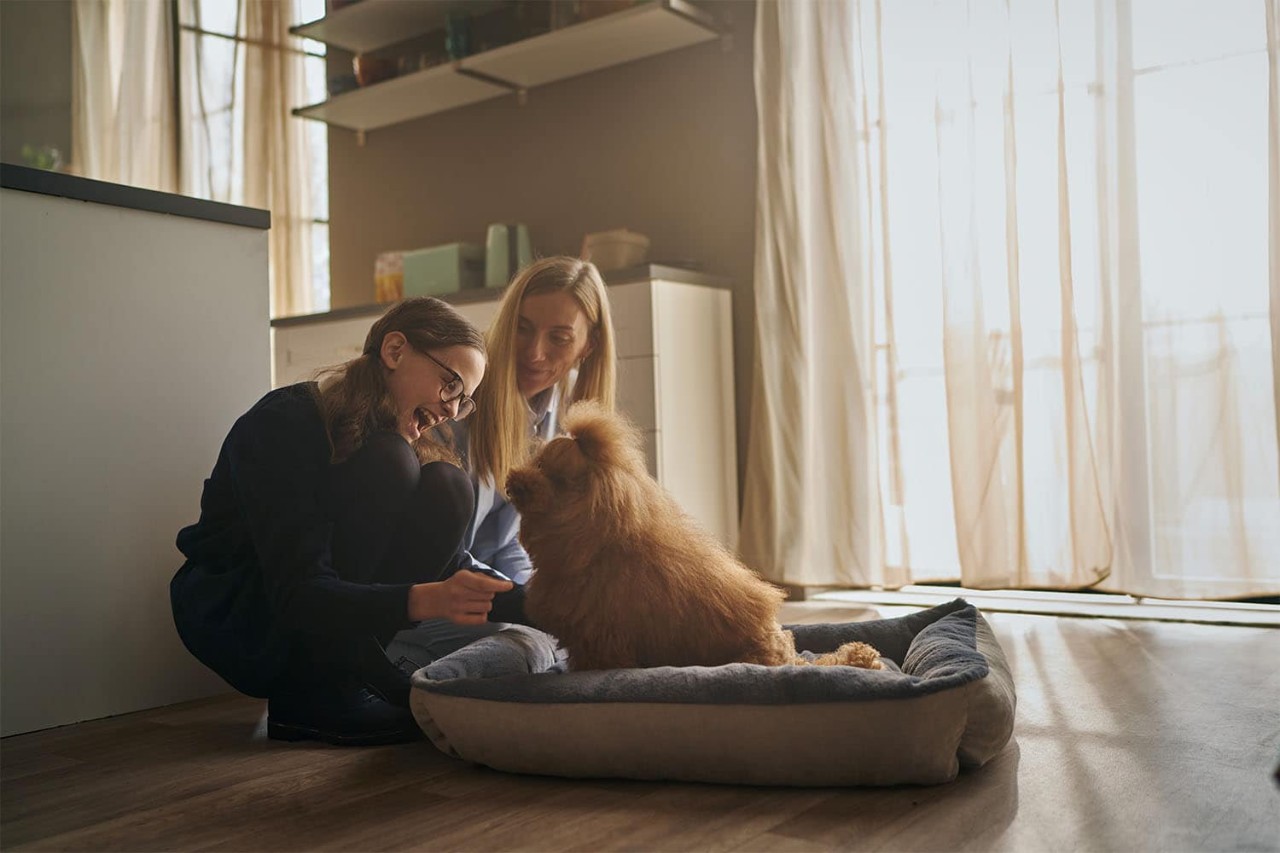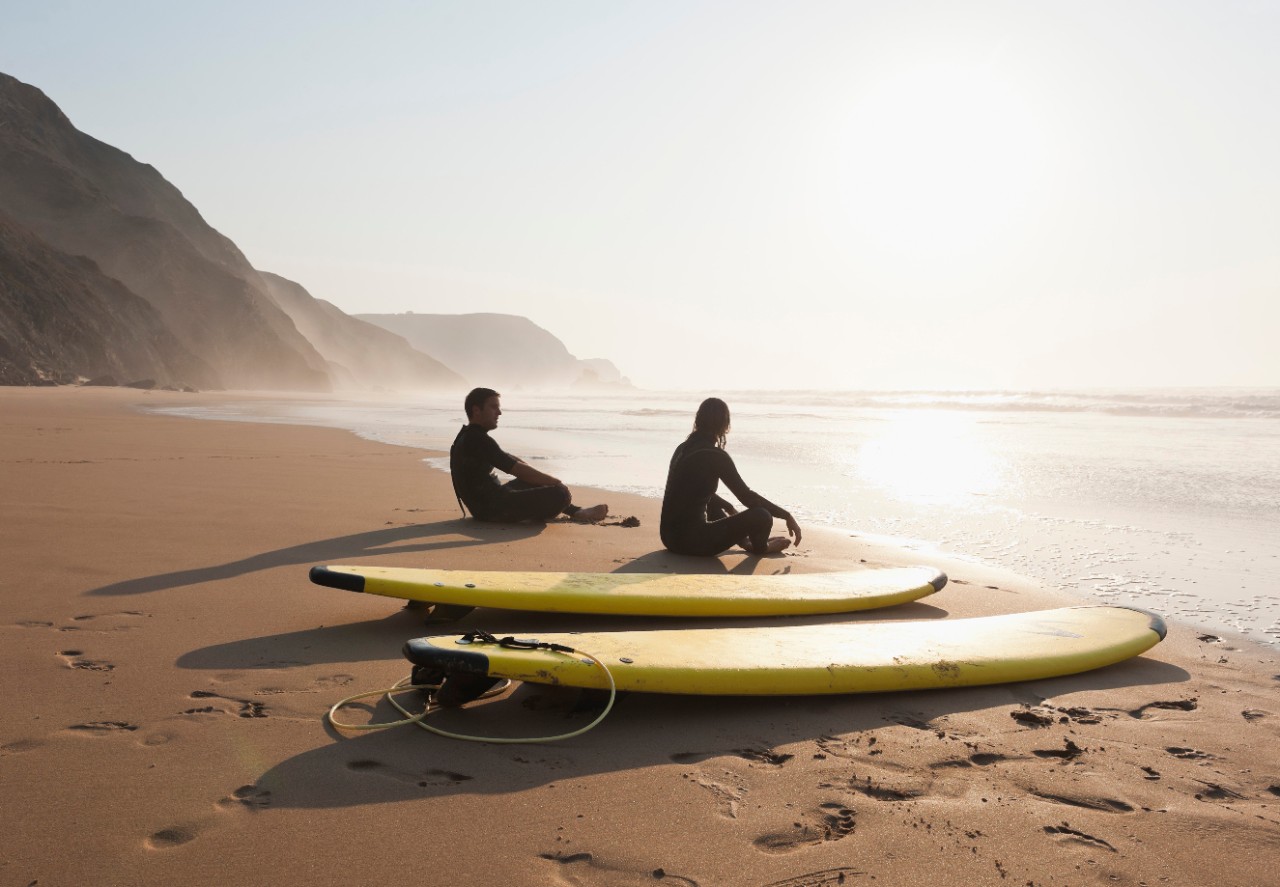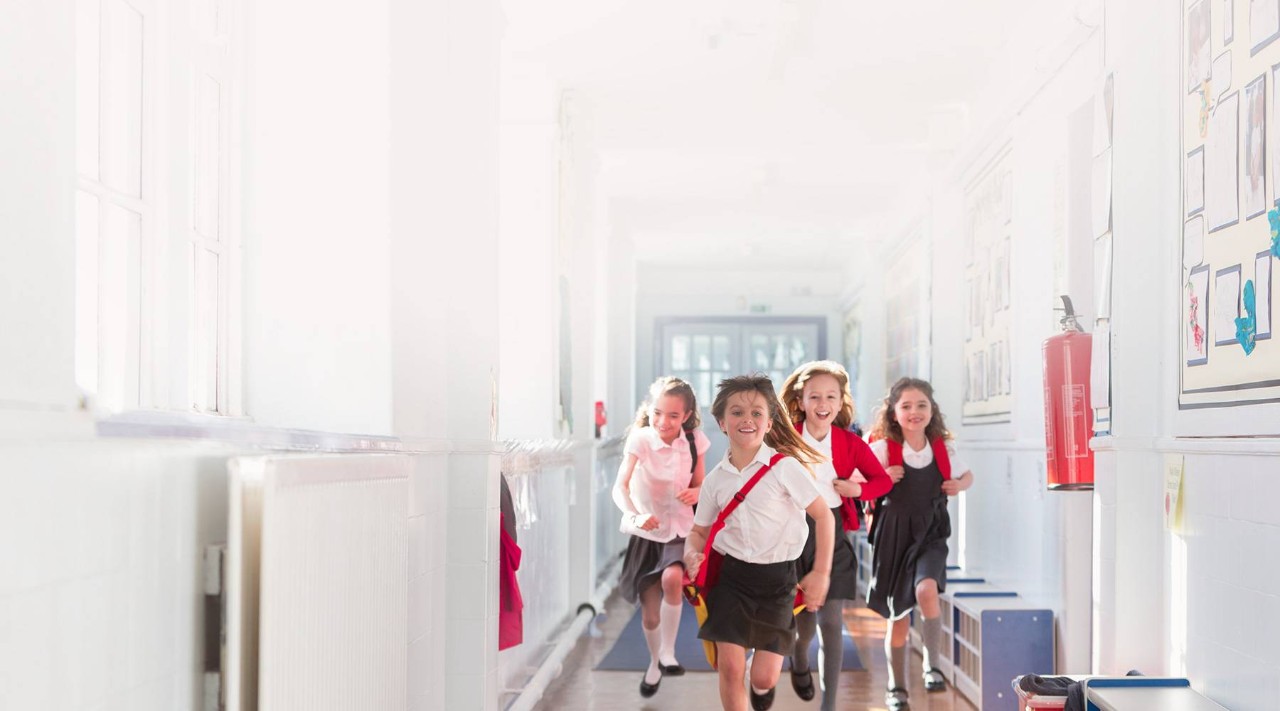Bank Holiday Driving Survival Guide

Woohoo, it’s the June bank holiday weekend! Bank holidays are a great excuse to hit the road and take a break from the norm, and many of us in Ireland do just that. We pack the car with all our things and the people we love and head off looking for adventure. But as fun as a three-day-weekend is, the problem for most is that everybody seems to get in their vehicles and leave at the same time. That means, from early afternoon on the Friday before a bank holiday there is a mass exodus and the roads become congested very quickly.
But just because everybody has the same bank holiday plans as you, and seemingly the same route as you too, needn’t put a dampener on things. We’ve got some handy tips and tricks to help you cope with the bank holiday traffic and how to have a stress-free and fulfilled trip.
Preparation is Key
Make like the Boy Scouts and always be prepared. This approach is the key to a great bank holiday getaway.
Pack up your belongings the day before and make sure you have all you need ready to go, so it is one less thing to worry about before setting off.

Plan your route beforehand too, especially if it is a new destination along roads that you haven’t driven before. Put the destination into your car’s sat-nav or your phone or a mapping website before you set off. Make sure that the destination is the correct one; you don’t want to end up in Cashel, Tipperary if you meant to go to Cashel in Galway. It is also a good idea to print out the route guidance as a backup. Remember these devices can be tricky to use so make sure you’re all set before you set off.
The worst of the congestion will be along routes out of large urban areas. If you can, take the National roads and the more scenic routes. It may add more mileage to the journey but by avoiding the motorways and highways not only will you (hopefully) avoid most of the traffic but you will see more interesting things and some fantastic scenery. Fun fact time – research in the Journal of Environmental Psychology shows that routes with more trees and nature help reduce the stress levels of drivers. So, taking the scenic route is good for your mental and physical health.
Plan your Drive
While planning your route make sure you also plan your rest stops. We all want to get to wherever we are going but rest stops are important. You need to get out of the car, stand up and move around so your body, especially your back and shoulders, don’t get tense. The more relaxed you are behind the wheel, the more enjoyable the drive and the safer too.
Stopping for a break will also help to reduce driver fatigue. You may not feel tired but it is recommended that you stop at least every two hours. It is estimated that driver fatigue is a contributory factor in driver deaths in Ireland every year. But help is at hand when you do pull over as frequently the RSA teams up with service stations nationwide to provide free coffee to drivers on the Friday of a bank holiday weekend. Listen out to the radio or have a look online (before you leave) and find out which garage will be offering this much-needed caffeine fix. Research if there are any of these garages on your route and take advantage of this offer.
Musically Motoring
Hey Mr DJ! Put a record on. The best road trips can be ruined with awful music, no music at all or worse still, crackly radio stations. With streaming services like Spotify and Apple Music, it is easy to find millions of pre-made playlists that you can download, listen to and sing along to. If you have music on your computer you can make your own playlists or if you are keeping it old school you can bring along all your favourite tapes and CDs. Audiobooks are also great but if you have passengers you will have to find something that they all like or else make sure they all have their own personal music players. In terms of what to listen to, research shows that Faster music can make you feel more alert and concentrate better, while a slower tempo can quiet your mind and relax your muscles. Singing is a great way to destress and have a laugh especially if you can get all your passengers involved. If not, go right ahead and sing your heart out anyway.
If you are travelling with kids you will know how important it is to keep them entertained for the duration of the journey to avoid the dreaded “ARE WE THERE YET?” Keep items for the children such as toys, wipes and snacks within arm’s reach. However, if your children are prone to motion sickness then tablets and books or any other toys that require them to look down are almost guaranteed to make them reach for the sick bags. The best thing to do to keep the little ones occupied is playing games like ‘Eye Spy’ and other games that require them to look up and out the windows or get some table holders fitted to the back of the front seat headrests so Peppa Pig can do her job and keep them quiet.
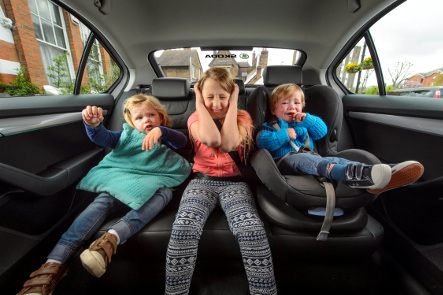
Driving Duties
Bank holidays can result in a higher number of breakdowns on the road, so make sure you do all the necessary checks to make sure that your car has a good bill of health before you set off. Simple checks don’t require a degree in mechanical engineering. Fill up the car’s washer reservoir, check if you need to top up your oil and check the pressure in the tyres to make sure that they are adequately inflated to the recommended pressure. Most cars will have a sticker on the inside of the driver's door frame displaying them, or else they will be listed in the manual. Under-inflated tyres will not only increase the wear rate but will result in higher fuel consumption. Check with your insurance provider to see if you have breakdown cover and what it covers, Make sure that you have the number of your breakdown company in your car or saved to your mobile phone just in case you need it.
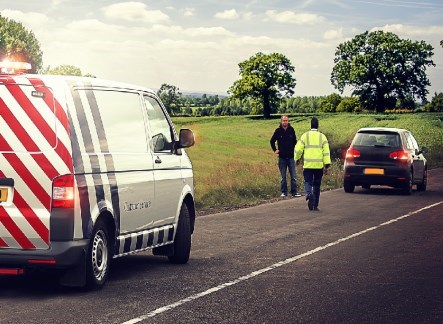
If you plan on sharing the driving duties with your passenger check with your insurance company if they are covered to drive your car and if not, enquire if you could add them to your policy for the duration of the trip.
Make sure you have plenty of snacks and liquids to keep you sustained too. Flapjacks are good as the oats have slow-release carbohydrate energy and blueberries, pistachios and dark chocolate are said to reduce stress levels. Water is of course the best when it comes to hydration but if you are tired and need a boost, caffeine has been shown to increase alertness.
So far so good, right? You are all prepared and ready to hit the road. But what about when you are on the road and stuck in traffic with nowhere to go?
Highway to Hell
Stay cool. If it is hot out and you are using the air-con keep the windows up and switch on the recirculate button (this reduces your exposure to fumes). If you don’t have air-con, then open the windows opposite each other to get a cross breeze going.
If you have been listening to fast music now is the time to switch to some slow calming music.
Eat a snack. Eating always makes everything better.
Road Rules
No matter how long you are sat in traffic or how bored you get do not look at your phone. It is illegal to use a mobile device while driving and it will get you 3 to 5 penalty points and a fine of up to €90 if you are caught and convicted. If your car has a Bluetooth connection, make sure that your phone is paired to it before setting off. You’ll only need to pair it once.
No matter how much you want to get out of the traffic do not drive on the motorway hard shoulder it is illegal and will get you 1 to 3 penalty points and a fine of up to €120.
If the traffic is really bad, get off at the next junction and find somewhere safe to pull over (not on the motorway hard shoulder) and look at your map for an alternative route. If there is no alternative route then decide if it is best to sit in the traffic or to wait it out by sitting in a café.
If you have a passenger with you who is insured to drive your car, swap over as soon as you feel your stress levels rising and take a break from the wheel.
If you really want to make your bank holiday weekend driving as stress-free as possible then postpone your journey until Friday evening or even Saturday morning when the traffic is lighter.
Above all else, make sure you pack your sense of humour and keep your eye on the prize – a lovely long three-day weekend. Remember, the journey is also part of the weekend and you should make that as fun and enjoyable as possible and the return journey shouldn’t be as bad as the traffic is much more staggered over the weekend.
Happy and safe driving.

All Information correct as of 01/05/2017. This blog will not be updated or edited so the information may become outdated.
This article is for general information purposes only and does not purport to provide legal advice or other professional advice. Allianz accepts no responsibility or liability for any losses that may arise from any reliance upon the information contained in this guidance.
